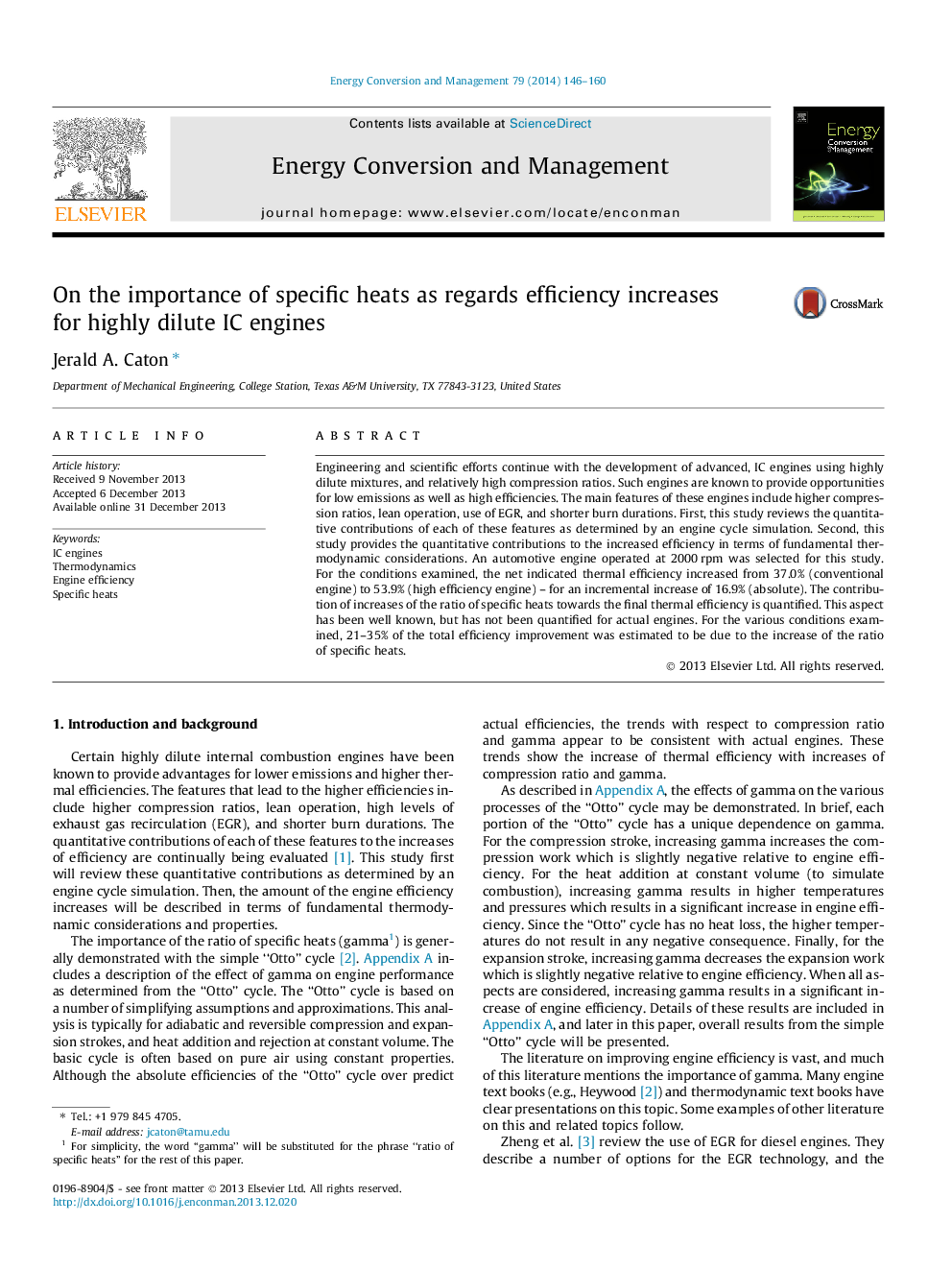| کد مقاله | کد نشریه | سال انتشار | مقاله انگلیسی | نسخه تمام متن |
|---|---|---|---|---|
| 771996 | 1462883 | 2014 | 15 صفحه PDF | دانلود رایگان |

• Importance of specific heats towards increasing engine efficiency was quantified.
• Decreases of specific heats contribute 3.5–6.3% (abs) to the efficiency.
• Dilute engines benefit from decreases of specific heats due to lower temperatures.
Engineering and scientific efforts continue with the development of advanced, IC engines using highly dilute mixtures, and relatively high compression ratios. Such engines are known to provide opportunities for low emissions as well as high efficiencies. The main features of these engines include higher compression ratios, lean operation, use of EGR, and shorter burn durations. First, this study reviews the quantitative contributions of each of these features as determined by an engine cycle simulation. Second, this study provides the quantitative contributions to the increased efficiency in terms of fundamental thermodynamic considerations. An automotive engine operated at 2000 rpm was selected for this study. For the conditions examined, the net indicated thermal efficiency increased from 37.0% (conventional engine) to 53.9% (high efficiency engine) – for an incremental increase of 16.9% (absolute). The contribution of increases of the ratio of specific heats towards the final thermal efficiency is quantified. This aspect has been well known, but has not been quantified for actual engines. For the various conditions examined, 21–35% of the total efficiency improvement was estimated to be due to the increase of the ratio of specific heats.
Journal: Energy Conversion and Management - Volume 79, March 2014, Pages 146–160